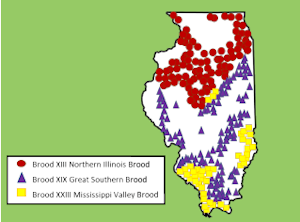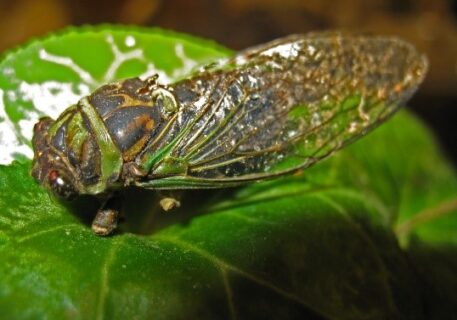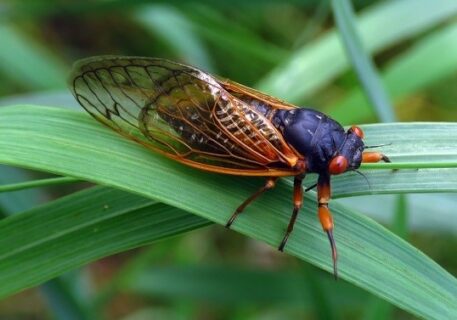
You have probably heard all the hype around the great cicada invasion due to occur in Illinois in 2024. Is this a reason to pack up and head out of state? I don’t think so and here is why. Two periodic cicada broods native to Illinois, broods XIII & XIX, are due to emerge this summer. Brood XIII emerges every 17 years and brood XIX emerges every 13 years. If you do the math, these two broods only emerge together every 221 years. The last time this occurred was in 1803 and it will not occur again until 2245. Their chronological cycles may overlap this year but their geographical ranges overlap only in a narrow band in north central Illinois (near Springfield). In most areas, like Glenview, there should not be any more sightings than when only one brood appears. However, brood XIII, which emerges every 17 years in Northern Illinois will produce millions of cicadas over four states (IA, IL, WI, IN, & MI).
Cicadas are large insects ranging from 1-2 inches long. They are most commonly known for the high pitch song which the males sing to attract mates. Males make this sound by flexing muscles in their abdomen that pulls on a drum like organ called a tymbal. Females respond by flicking their wings.
Annual cicadas live underground for 2-5 years feeding on plant roots, but enough emerge every year to make them appear annually. Periodic cicadas live underground for many more years, depending on the brood and then emerge in large numbers every 13 or 17 years, making them some of the longest living insects in the world.
Periodic cicadas emerge when the soil temperature, 8 inches below the surface, reaches 64oF, usually from mid-May to late June. Cicadas are cold blooded meaning they are most active when air temperatures are between 65-83oF, with 72oF, being ideal for flying, singing, and mating.
Cicadas provide a bountiful harvest of food for many creatures that eat them, like, birds, squirrels, opossums, moles, snakes, raccoons, dogs, and even people. Search the web and you will find hundreds of recipes for cicada BBQ, kabobs, gumbo, stew, or deep fried.
-article written by GHA Board Member Jeff Hoyer


